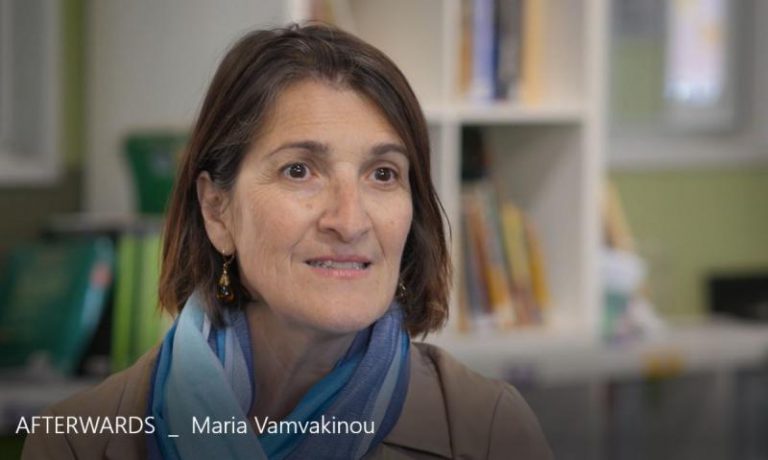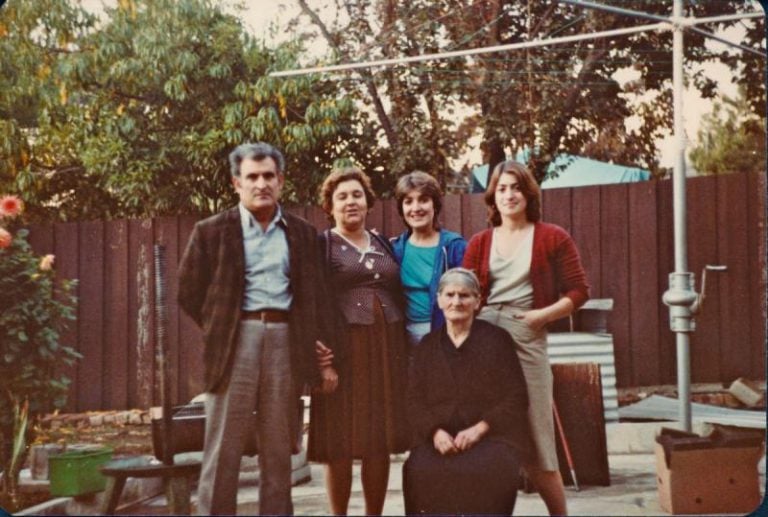Victorians have the chance to take a rare glimpse into the private life of Maria Vamvakinou as part of AFTERWARDS, a short-form documentary series created by Multicultural Arts Victoria (MAV) in which the Federal Member for Calwell shares her story of migration to Australia from Greece.
A joint project by producer and MAV curator Lella Cariddi and filmmaker Adam Ricco, the four-part series explores what it feels like to be a migrant or refugee travelling to a distant land to start life anew, with a focus on post-World War II immigrants and refugees.
In the middle of the 20th century more than one million people who were affected by war and economic despair, cast in the shadow of the Cold War disembarked at Port Melbourne, among them the then four-year-old Maria who today says she is very honoured to be taking part.
“I have a very high regard for the work that MAV has done and is doing. These stories are too important, they must be told in order not to be forgotten and in doing so they give all Australians an opportunity to learn about our past, to learn about the people that shaped us as a contemporary multicultural society,” she tells Neos Kosmos.

Those featured in the AFTERWARDS series all came to Australia as children, and despite the many challenges and uncertainties they faced, they raised families, built careers, and are now distinguished Australians.
In the documentary, Ms Vamvakinou gives a touching and honest account about her experiences growing up in Australia. Originally from Agios Petros in Lefkada, she arrived in Australia in 1963 with her parents and sister on the SS Patris.
The viewer relives moments with her, as she takes us back to her primary school in Brunswick, and remembers the precise moment she realised she could speak and understand English.
She recalls the experiences of her parent’s generation, who worked hard and made endless sacrifices, their feelings of dislocation and the dream of returning to the homeland, juxtaposed with the experiences of their children, who were navigating a society that was “very Anglocentric”.
“Our parents worked and got by with little English, they created their own social infrastructure through brotherhoods and communities. The children on the other hand, lived in two worlds. At school, it was the Australian community and at home it was the Greek community. Growing up between two worlds was a challenge, especially for girls. We called it an ‘identity crisis’,” Ms Vamvakinou says.

Though she recalls that it was harder for some than others, with conflict ensuing at home with parents, they generally managed to integrate themselves successfully and says that today more than ever that she is proud of who she is, seeing her Greek heritage as a strength, though admits to it being an aspect of her life that she could only appreciate when older.
Reflecting on the past and now her present as a member of the Australian Labor Party, the MP acknowledges that migration will always be an integral part of nation-building in Australia and hopes that the stories and experiences of previous migrants will help the next generation, of which she particularly hopes policy makers and governments will take note.
“History tells us that multicultural policy in this country has worked and that migration is of great benefit to Australia. We have significant evidence to rebuke the critics that pop up from time to time in our history,” she says, and warns against people buying into the ‘Pauline Hanson-type narrative’.

“Refugees have made significant contributions to Australia, again there is ample evidence of this, from the thousands of refugees in the past that have been coming to Australia from war-torn countries, fleeing persecution or dislocation, to those fleeing the same circumstances today.
“Australia has benefited from giving refuge and asylum to people so we should use this history to again refute the claims that refugees will swamp us and become a burden to our welfare system. This is a divisive narrative that we should all stand up to,” she says.
The series is a reminder of another time in Australia’s history when people in need were arriving on boats, and while from a different continent, it is an opportunity for people to remember where they came from, and the circumstances that brought them in search of a better life for themselves and their families.
If anything, the MP wishes that through her story and those of the other migrants featured, that newly arrived young people will feel a sense of hope and belonging.
“It is my hope that younger people of migrant background will see our stories and realise that we too had issues and challenges as young people. But we overcame them. I always encourage young people to be proud of their parents, to be proud of their grandparents, to be proud of their heritage, to maintain their language inheritance,” she said.
“Australia’s migrant history is a part of contemporary Australian history.”










